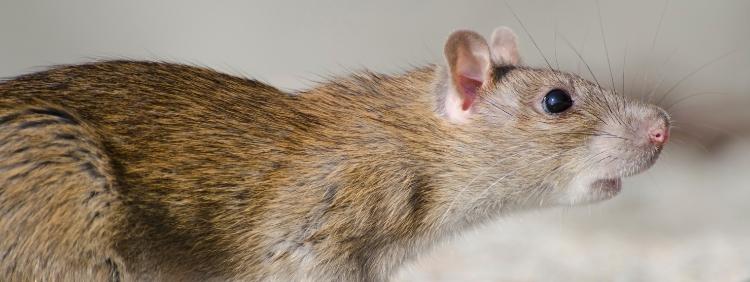Kitchener Pest Control: How Good Are Mice and Rat Senses?

Rats and mice are well adapted to avoid predators and live alongside humans for some time without detection. It is difficult to deal with a rodent infestation by yourself, and you may have to call mice control services in Kitchener to deal with the problem completely. Not only do rats and mice in your home typically outnumber you because of their prodigious reproduction, but they also have keen senses that help them avoid detection and capture.
Touch
Mice and rats have the same five senses that humans do, but they don’t use them the same way. For example, the sense of touch in rats and mice is highly acute, but they don’t make the most use of it with their front paws the way humans do their hands. Rather, mice and rats have whiskers around their mouths and noses that are very sensitive. When the whiskers come in contact with an object, it causes them to bend, a motion that sends signals to the brain and allows them to avoid the obstacle. Because rats and mice are nocturnal, this helps them to navigate more effectively in the dark.
Smell
If you have a mice infestation in your home, it is likely because their sense of smell led them to it. While human beings have about 400 olfactory receptors in their nasal tract, mice have over 1,000. In fact, olfactory receptors account for 1% of their entire DNA. Rats and mice also have an olfactory organ that humans lack called the vomeronasal organ. This allows them to detect pheromones that allow them to communicate with other rodents through smell. Rodents can detect far more distinct odours than humans can, helping them to identify possible food sources as well as to detect potential predators.
Sight
Because rats and mice are nocturnal, they do not use their sight for navigation. Rather, they use it primarily to watch out for predators. Their eyes are able to move independently of one another, so they can keep one eye on the sky and the other on the path ahead of them. Rodents’ vision is less keen than humans in the sense that they cannot see the colour red but, unlike humans, they can see ultraviolet light. This helps them detect where other rats and mice have been because rodent urine reflects ultraviolet light. Their vision is not as sharp as a human’s, but they have a good ability to perceive light and dark, which helps them to detect and evade predators’ movements.
Taste
Rats and mice are omnivores, meaning they eat both plants and animals. They are opportunistic and can feed on whatever is available. Their sense of taste helps them to identify potential toxicity and informs them whether the food they have discovered offers nutritional benefits. The food that a mother rat eats is transmitted to her young through the milk that they feed on. As a result, rats may grow up to have certain food preferences, although they will eat almost anything if they have to.
Hearing
Rats and mice have a much wider hearing range than humans. While the highest-frequency sound that a human can detect is 20,000 Hertz, rodents can detect sounds up to 90,000 Hertz. This gives them the ability to detect noises that are much higher-pitched than we can. They can also produce high-frequency noises beyond the hearing range of humans that they use to communicate with one another. That means that when you hear rats’ or mice’s vocalizations, they are making the lowest sounds possible for them. It is possible, though yet to be confirmed through research, that rats and mice may use echolocation for navigation, as bats do.
Call Truly Nolen for Mice Control Services in Kitchener
Their keen senses give rats and mice advantages over humans in many respects. If you are experiencing mouse problems, Truly Nolen can help level the playing field. Learn more about the services we offer in Kitchener and nearby areas.